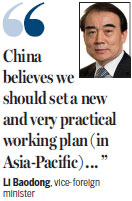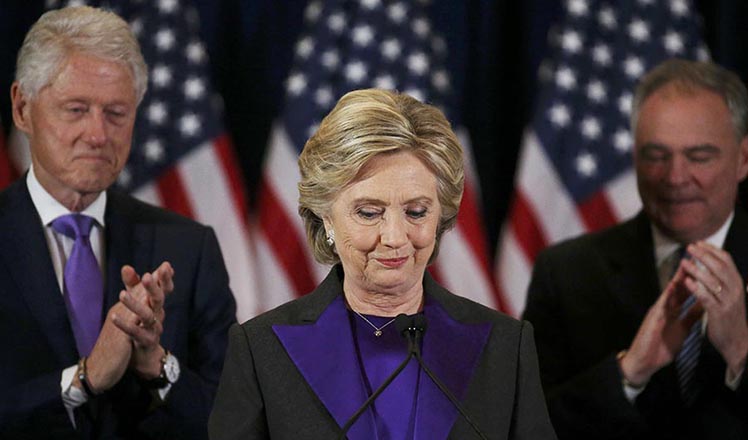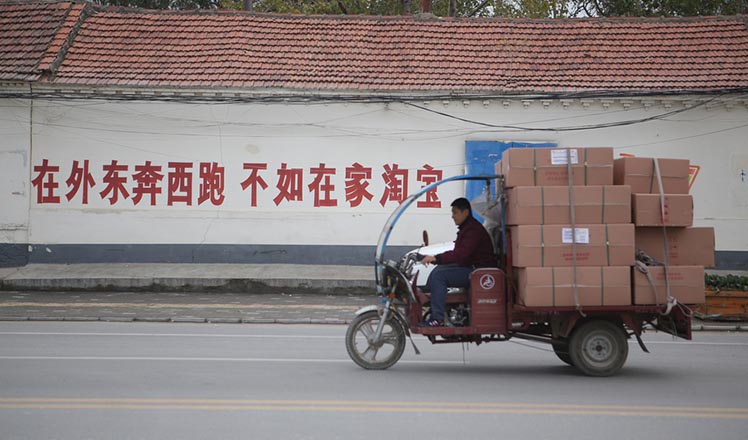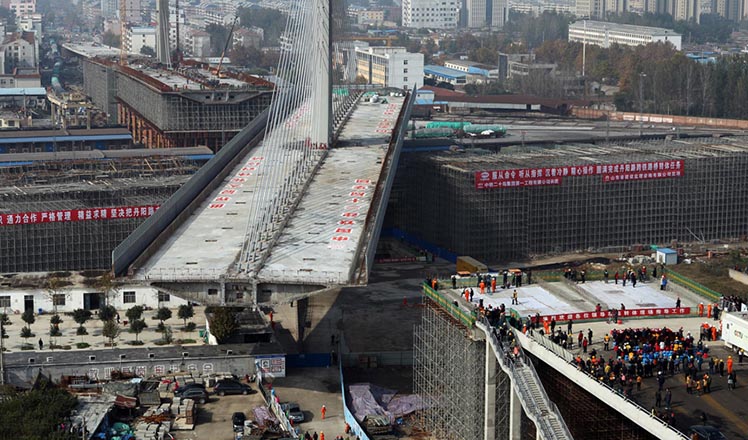Free trade push amid Trump win
Updated: 2016-11-11 12:34
By Chen Weihua in Washington(China Daily USA)
|
|||||||||
China plans to push forward its free trade agenda at the upcoming Asia-Pacific Economic Cooperation (APEC) summit in Lima, Peru, this month, at a time when the United States just elected anti-trade Donald Trump president.
In Beijing on Thursday, China's Vice-Foreign Minister Li Baodong warned of the rise of protectionism and said the region needed a free trade agreement as soon as possible.
"Trade and investment protectionism is rearing its head, and the Asia-Pacific faces insufficient momentum for internal growth, and difficulties in advancing reforms," Li was quoted by Reuters as saying.
"China believes we should set a new and very practical working plan, to positively respond to the expectations of industry, and sustain momentum and establish a free trade area in Asia-Pacific at an early date," Li said at a briefing on President's Xi Jinping's upcoming trip to APEC and the three Latin American countries of Peru, Ecuador and Chile.
China has proposed the Free Trade Area of the Asia Pacific (FTAAP) and the Regional Comprehensive Economic Partnership (RCEP), seen as by some observers as competitors to the US-led Trans-Pacific Partnership (TPP).
Li said Xi's attendance showed China's "confidence in promoting the FTAAP process".

"China is always positively advancing work on its own regional free-trade strategy. We, indeed, are continuously and positively advancing RCEP negotiations," China's deputy international trade representative Zhang Xiangchen said.
While the TPP includes 12 Pacific Rim countries, RCEP embraces the 10 members of the Association of South East Asian Nations plus China, Japan, South Korea, India, Australia and New Zealand. China is not included in the TPP; the US was not included in RCEP.
The TPP has been opposed by both Trump and Hillary Clinton, the Democrat candidate who lost the election to Trump on Nov 8. Most Democrat lawmakers oppose TPP and the support for TPP has also declined among Republican lawmakers, making it highly unlikely Obama will pass it through Congress during what's left of his lame-duck session.
US President-elect Trump had repeatedly blasted the TPP trade deal on the campaign trail, saying it would hurt American workers. He also vowed to cancel the agreement, regarded by Obama as a major part of administration's legacy and essential to his rebalance to Asia strategy.
TPP has been widely regarded as an Obama administration tool to rival China's growing influence in a region where China is the largest trade partner for most nations.
"Trade agreements should not be strategic tools, rather they should offer hefty economic benefits," Derek Scissors, a resident scholar at the American Enterprise Institute, wrote on Thursday at the ChinaFile website.
An economist, Scissors said when he read the entire TPP text a year ago, he did not find much in the way of net economic benefits, adding that the International Trade Commission drew similar conclusions six months ago.
Scissors also argued that there is no reason to link the exchange rate of Chinese currency to US jobs, clearly referring accusations made by Trump on the campaign trail. "Trying to link the value of the RMB to American jobs requires contortions, since the most silent evidence shows they are not meaningfully connected," he said.
On Thursday, James Woolsey, the former director of the Central Intelligence Agency and now a senior advisor to Trump on national security, criticized the Obama administration for failing to embrace the China-led Asian Infrastructure Investment Bank (AIIB), suggesting a possible policy shift in January when the Trump administration takes control.
Reuters contributed to the reporting.
chenweihua@chinadailyusa.com
- Online shopping frenzy sparks trash concern
- Is it a thing? 10 odd jobs where you can make good money
- Message on a bottle: Mineral water company launches drive to find missing children
- Snow leopards caught on camera
- A foreigner's guide to Singles Day shopping spree
- China jails 49 for catastrophic Tianjin warehouse blasts
- Americans want to change presidential election system
- UK business calls for exclusive visa system for post-Brexit London
- Australia poised to sign refugee deal with United States: media
- Philippines' Duterte says he is against 2014 defense pact with US
- S.Africa wants to work with US in promoting peace: Zuma
- Trump's victory on global pages

 Alibaba breaks sales record on Singles Day
Alibaba breaks sales record on Singles Day
 Ten photos from around China: Nov 4-10
Ten photos from around China: Nov 4-10
 Snow storm hits Xinjiang
Snow storm hits Xinjiang
 Clinton concedes election, urges open mind on Trump
Clinton concedes election, urges open mind on Trump
 Places to enjoy golden gingko tree leaves
Places to enjoy golden gingko tree leaves
 Taobao village gets ready for shopping spree on 11/11
Taobao village gets ready for shopping spree on 11/11
 Overhead bridge rotated in East China's Shandong
Overhead bridge rotated in East China's Shandong
 The 75th anniversary of Red Square parade celebrated
The 75th anniversary of Red Square parade celebrated
Most Viewed
Editor's Picks

|

|

|

|

|

|
Today's Top News
No environmental shortcuts
US election rhetoric unlikely to foreshadow future US-China relations
'Zero Hunger Run' held in Rome
Trump outlines anti-terror plan, proposing extreme vetting for immigrants
Phelps puts spotlight on cupping
US launches airstrikes against IS targets in Libya's Sirte
Ministry slams US-Korean THAAD deployment
Two police officers shot at protest in Dallas
US Weekly

|

|









